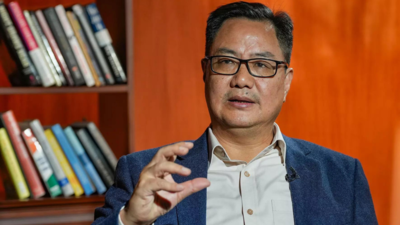Major IAS Reshuffle in Odisha: Over 80 Top-Level Bureaucratic Changes Announced – News12 Odisha


Bhubaneswar: In one of the most extensive administrative overhauls in recent years, the Odisha government announced a major reshuffle of the Indian Administrative Service (IAS) cadre. Over 80 IAS officers, including senior secretaries, revenue divisional commissioners (RDCs), collectors, and department heads have been reassigned, signaling a significant shift in administrative strategy.
Senior Bureaucrats Take Over Critical Departments
1995 batch officer Hemant Sharma, currently Additional Chief Secretary (ACS) of the Industries Department and Chairman of IPICOL, has now been given additional charge as ACS of the Information and Public Relations (I\&PR) Department. Consequently, Sanjay Kumar Singh’s temporary role as Principal Secretary of the I\&PR Department stands terminated.
Sanjeeb Kumar Mishra (1997 batch), Principal Secretary of the Odia Language & Culture Department, has been appointed as Principal Secretary of the Finance Department. He will also continue as Chairman of IDCO.
N.B.S. Rajput (1999 batch), who was serving as Principal Secretary to the Governor and Public Enterprises Department, will now exclusively focus on the Public Enterprises portfolio and continue as CMD, OSRTC.
Bhaskar Jyoti Sarma (1999 batch) has moved from Sports to Excise Department as Principal Secretary, but retains his additional charge as CMD, OPTCL.
New Appointments in Governor’s Office and Sports Department
Roopa Roshan Sahoo, a 2006 batch IAS officer, has been appointed Secretary to the Governor—marking a historic first for the Raj Bhavan as she becomes the first woman in that role.
Sachin Ramchandra Jadhav (2007 batch), RDC of Sambalpur, is now Commissioner-cum-Secretary of the Sports & Youth Services Department while continuing with his previous responsibilities.
Focus on Industrial, MSME, and Tribal Affairs
Bhupendra Singh Poonia (2008 batch) has been given full charge as Secretary of the Skill Development & Technical Education Department, with additional charge of MD, IPICOL.
B. Parameswaran (2008 batch), RDC of Cuttack, is now Commissioner-cum-Secretary of the ST & SC Development, Minorities & Backward Classes Welfare Department.
D. Prasanth Kumar Reddy (2009 batch) takes over as Commissioner-cum-Secretary of the MSME Department and continues as MD, IDCO.
District Administrations See Widespread Reshuffling
In the most sweeping changes at the district level, new collectors and district magistrates have been posted in Puri, Khordha, Kendrapara, Ganjam, Malkangiri, Rayagada, Dhenkanal, Koraput, Nabarangpur, Sundargarh, Jharsuguda, Kandhamal, Boudh, and several other districts.
Among key district postings:
* Dibya Jyoti Parida becomes Collector of Puri.
* Amrit Ruturaj has been shifted to Khordha.
* Raghuram R. Iyer takes over as Collector of Kendrapara.
* Ashish Ishwar Patil is moved to Dhenkanal.
* Subhankar Mohapatra becomes Collector of Sundargarh.
* Manoj Mahajan shifts to Koraput.
* Parul Patawari becomes Director, SSEPD, moving from Rayagada.
* Chavan Kunal Motiram will now head Jharsuguda.
* Madhumita Rath, formerly in Textiles, is now in School & Mass Education.
Several First-Time Appointments and Promotions
A notable trend in this reshuffle is the promotion and first-time district appointments of many 2020 and 2021 batch officers. Vedbhushan, Kulkarni Ashutosh, Madhumita (RR-2020), and Rehan Khatri (RR-2021) are among those appointed as Collectors or Commissioners for the first time.
Additionally, OAS officers Nruparaj Sahu and Ambar Kumar Kar have been appointed as Collectors of Sonepur and Jajpur respectively.
Administrative Strategy Behind the Reshuffle
Officials familiar with the development indicate that the large-scale reshuffle aligns with the government’s plan to infuse young energy and experienced leadership into crucial development, revenue, and welfare departments. It is also aimed at improving governance outcomes in line with the 2036 Odisha Vision roadmap.
This administrative reset is expected to enhance implementation efficiency, especially in key areas like education, finance, industrial development, tribal welfare, and grassroots governance.





